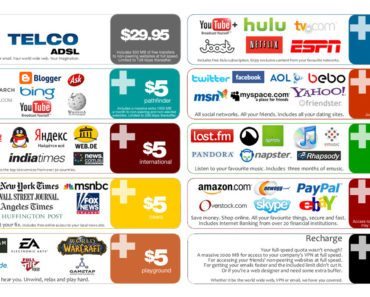
Photo: Mac Rumors
The number of major wireless carriers in the United States could shrink from four to three. Sprint and T-Mobile have announced that they intend to merge. The merger will need to be approved by regulators and the companies’ shareholders.
This new company would represent more than 90 million retail wireless phone customers in the U.S., roughly one-third of the market, research firm Recon Analytics said.
The deal is far from a sure thing, as analysts expect it to face tough regulatory scrutiny. The implications for consumers also are unclear. Industry experts say it would help pave the way for a faster rollout of a nationwide 5G network. However, speedier service could mean higher monthly bills for users.
What This Means for You
Some market watchers say they do have, at the very least, a strong hunch that wireless customers wouldn’t see any benefit from a merger.
“Consumers will be the losers if T-Mobile and Sprint are allowed to merge,” Gigi Sohn, counselor to former FCC chairman Tom Wheeler, said in a statement. “This combination will not only result in less choice for consumers, it will provide greater incentive for the three remaining companies to act in concert,” she said.
Not everyone has such a pessimistic outlook on the merger. “I think this deal is good for consumers,” said Jonathan Chaplin, managing partner at New Street Research. “T-Mobile has reshaped the mobile industry,” he said, often forcing AT&T and Verizon to follow its lead in areas like pricing, unlimited data and doing away with contract-based service plans.
With the two companies combining their networks, it’s possible the service on both will improve. The companies promise that existing customers with both services “will benefit from increased speeds, coverage, and performance as the two companies’ networks combined.” However, it’s likely we know more about performance quality once the shift actually happens.
Sprint and T-Mobile pledged to continue offering lower prices compared to rivals AT&T and Verizon. However, they did not go so far as to clarify which of their respective current plans would be sticking around.
On T-Mobile, plans with two or more lines come with a free Netflix subscription. On Sprint, it is music service Tidal (for six months) and Hulu, if your plan is eligible. It is possible customers could wind up with a really strong deal on streaming services, but the companies have yet to confirm their fate.
Will this actually go through?
Will talk of more jobs quell fears of a wireless oligopoly crushing competition? That is the $26 billion question.
T-mobile CEO John Legere and Sprint CEO Marcelo Claure are on a charm offensive in the wake of the announcement. Not everyone is certain this merger will actually go through. Wall Street, for one, seems to be less optimistic with Sprint stock cratering nearly 14% and T-Mobile falling more than 6% percent late Monday.
Antitrust concerns already quashed one attempted T-Mobile merger this decade, when AT&T looked to buy the wireless carrier in 2011 for $39 billion. With the shrinking of four wireless carriers to three an option yet again, it is anyone’s guess which way regulators will go on this one.





![Pokemon Go Explained: FULL Beginners Guide [Plus 4 PRO Tips] Pokemon Go Explained: FULL Beginners Guide [Plus 4 PRO Tips]](https://suggestive.com/wp-content/uploads/2016/07/pokemon-go-full-guide-370x297.jpg)



